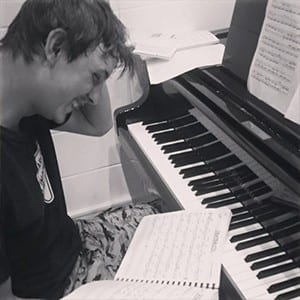Debunking Myths About Piano Practice: How to Master the Art with Patience and Joy
There are several myths surrounding the idea of practice, and in this series of posts, I will attempt to debunk a few of them. As with any myth, there is always a kernel of truth hidden within. The distinction is crucial because while these ideas may seem like common sense, they often act as demotivating mantras for beginner and amateur musicians. They can feel like heavy burdens, killing the desire and pleasure of playing an instrument. Hopefully, by the end of this post, you’ll see them in a different light.
Myth 1: “Serious Practice Requires Long Hours”

Two key ideas to unpack here: the belief that only long hours of practice lead to good results and the notion that seriousness is a must to achieve success.
What is True About Practice?
- To play well, one often needs to dedicate long hours, sometimes stretching over weeks or even months, to practice.
- The greatest and most serious pianists in history have indeed spent countless hours honing their craft.
What is Not True
- You don’t need to spend endless hours at the piano to achieve serious progress.
- Success in music isn’t just about the time spent; it’s about the depth of ideas and creativity that you bring to the table.
In reality, what makes an artist isn’t how long they spend practicing but the quality and meaning they infuse into their work. The beauty of a piece lies in its emotional depth and expression, not in how difficult it was to craft.
Finding the Right Balance
Put simply: to play a piece of music well, you need to put in the necessary time, which is different for everyone. Only you can determine how much time is needed by engaging deeply in the process.
If, after a month of practicing, you find that you’ve overestimated your time commitment, use it as an opportunity to reassess your goals. You’ve spent time training at a higher level, which is great! Now, choose something more within your current reach, or be a little more patient and continue working toward that higher goal.
Patience in Piano Practice

Serious practice requires patience. It’s the kind of patience that keeps you going even after making your hundredth mistake. You’ll need patience for any long-term goal—whether it’s writing a book, starting a business, or raising a child. The same applies to learning an instrument.
When you sit down to practice the piano, you’re not entering a gym to bulk up your muscles or solve a puzzle once and for all. Instead, you’re developing a skill that requires nurturing. Think of it as cultivating a plant or learning a language. It could take months or even years to master a particular piece, so arm yourself with patience and perseverance.
The Myth of Long Hours
The myth that “serious practice means long hours” often intimidates musicians, suggesting that no fun is involved in serious practice. However, that’s far from the truth. It’s possible to approach practice with determination while still enjoying the process.
Comedy Is Serious Business
You may have heard the saying, “Comedy is a serious business.” This quote implies that comedy requires skill, intelligence, and effort, just like music. The same logic applies to music and art. Approach it with respect and determination, but don’t take it too seriously.
There’s plenty of room for fun and joy in music. Even the most serious composers—like Gershwin, Stravinsky, Mozart, or Beethoven—infused humor and lightness into their works. So, while you should do your best, remember to enjoy the process.
Avoiding Harsh Self-Criticism
The downside of taking piano practice too seriously is that it can lead to unnecessary pressure and self-criticism. When everything becomes too important, mistakes become monumental, and your shortcomings are magnified. This defeats the whole purpose of enjoying your music.
Conclusion: Practice with Patience and Enjoyment
Your audience wants to hear your music, not your struggles with it. So, when you sit at the piano, don’t be overly serious—be patient, enjoy the process, and let the music flow.
